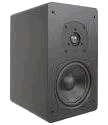![]() A note on copyright issues:
A note on copyright issues:
To avoid violating copyrights, no whole songs are included, but excerpts only; specifically, only excerpts that contain whole stanzas. You will not be able to reconstruct the songs by stitching end-to-end their pieces — sorry! — due to the way I present the beginning and end of each piece (fade-in, fade-out). I apologize for having to do that, but without such precautions this page would not exist.


